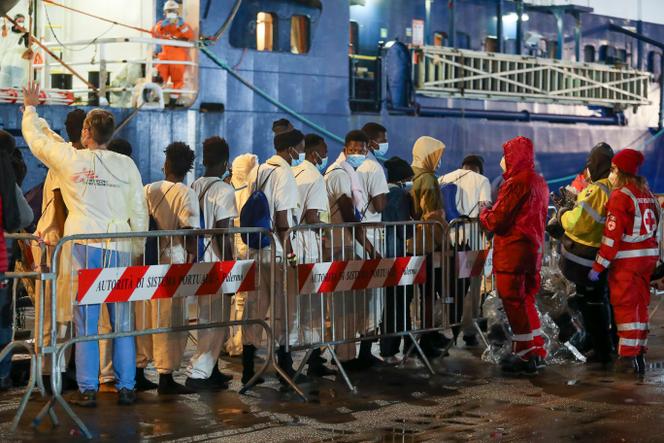


The man's pain crossed the sea with him. Under his shirt, his skin was pierced by cavities dug out by melted plastic. His wrists bore the marks left by the friction of bindings tightened to the point of cutting into the flesh. Elsewhere, his body was bruised by beatings and blows from plastic-coated metal cables. Mr. Kombia, 30, who preferred not to mention his first name or the name of his country of origin in West Africa, is a survivor of the economy of suffering stoked in Libya by an archipelago of detention centers, run by militiamen, human traffickers and forces reporting to authorities.
The bodies of exiles in search of work, like him, are the raw material and the source of income, arrested on the road before being passed from hand to hand, reduced to slavery, tortured to extract ransoms from their relatives back home. Kombia recounted how he managed to escape to Tunisia before surviving a shipwreck in the Mediterranean in February. He now lives with his pain and memories in the shadows of Palermo, where he washes plates in the back of a restaurant. "Every day, I see the face of the man who hit me," he said. "I remember his smile."
The effects of torture know no time limit, and Kombia is one of the few victims of the Libyan route who have access to the care meant to enable him to live with it. He is one of 74 patients in the specialized department caring for migrants who have been victims of torture. It was opened by the Paolo Giaccone hospital in Palermo, Sicily, in agreement with Médecins sans Frontières (MSF, Doctors without Borders).
"Year after year, people who have been tortured in Libya are still as numerous among those arriving in Italy," explained Giuseppe De Mola, project manager at MSF in Sicily. "Torture is a structural phenomenon of migration that has not found a response that is appropriate to its scale. The department set up in Palermo aims to show the way forward." Bringing together psychologists, a doctor, a social worker and cultural mediators, the structure links up with the specialties practiced at the Palermo hospital to direct torture victims according to their specific needs.
With 194 patients treated since 2021, the service's work seems derisory in the face of the unknown number of victims of torture for ransom and forced labor who arrive on Italian shores every year, having passed through Libyan detention centers. On the fringes of a public hospital system already under strain in southern Italy, it is nonetheless one of the observation posts for the horror that rages upstream on the migratory routes, whose traces can be read on the bodies of the survivors. "The torture practiced on migrants in Libya produces recognizable and specific after-effects among our patients, but what we see is only the tip of the iceberg," stressed Domenico Lio, the department's general practitioner.
You have 55% of this article left to read. The rest is for subscribers only.
